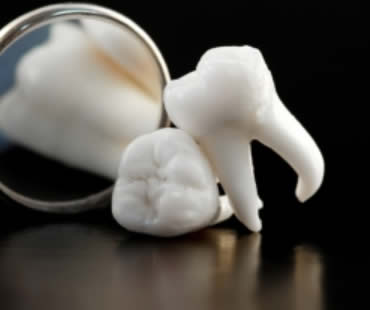
by Dr. Adkins | Jul 9, 2021 | Blog, Dental Topics 1, General Dentistry
Your body is a little bit like a puzzle. It gives you clues to help you figure out what’s going on within your body. Did you know your mouth can give you hints about things that may be happening elsewhere in your body? Here’s a list of some of the signs your mouth can give you to pay attention to certain other aspects of your health.
Worn teeth and headache
If your teeth are showing extensive wear, you may be grinding your teeth. This would be even a stronger possibility if you’re also experiencing regular headaches, which can be caused by the muscle tension related to teeth grinding. This condition also indicates that you are likely under too much stress, and that you are unconsciously coping with it by grinding your teeth.
Gums covering teeth
If your gums begin to grow over your teeth and you are on medication, it may mean that your medication is at fault. Some medicines can cause your gums to overgrow, and the dosage needs to be adjusted.
Mouth sores
An open sore in your mouth that doesn’t go away in a couple of weeks can be an indicator of oral cancer. Numbness and unexplained bleeding in your mouth are other signs. Smokers and people over age 60 are at the most risk, but that doesn’t mean it doesn’t affect others too. See your dentist to make sure all is okay.
Cracked teeth
If your teeth begin to crack or wear extensively, you may have gastroesophogeal reflux disease (GERD). It’s a digestive disease that allows stomach acid to flow back into your food pipe and mouth. This acid can cause your teeth to deteriorate. Additional signs of GERD are acid reflux, heartburn, and dry mouth.
Unclean dentures
If you wear dentures, make sure you remove and clean them regularly. Inhaling food debris from your dentures that makes its way to your lungs can lead to pneum

by Dr. Adkins | Jul 2, 2021 | Blog, Cosmetic Dentistry, Dental Topics 1
If stains, gaps, or chips in your teeth have limited your smile potential, dental veneers can revive your vibrant appearance. Porcelain veneers will hide imperfections and create a flawless smile. Designed to mimic the translucency of tooth enamel, porcelain veneers produce beautiful, natural-looking results.
Custom Porcelain Veneers
Handcrafted to change the size, shape, or color of your teeth, traditional dental veneers are customized to fit your mouth. Your dentist will actually sit down with you to review your options and discuss style that you like. Using this information and impressions of your teeth, the doctor will design an individualized plan for your smile transformation. With traditional veneers, patients can attain the gorgeous smiles they desire in two to three visits.
Minimal-Prep Veneers
For a smile makeover with little or no enamel removal, consider minimal-prep veneers like Lumineers from Cerinate. Made from ultra thin layers of porcelain, these restorations can effectively renew your smile. Minimal-prep veneers can close space between teeth as well as create a more uniform appearance. Placement of minimal-prep veneers usually takes just one appointment.
Snap-On Smile
While updating their smiles, many people are selecting Snap-On Smile until their transformation is complete. Made of acrylic material, the Snap-On Smile fits over your teeth and generates a temporary fix until your restorations are complete. People often choose Snap-On Smile for weddings, graduations, or to try out possible changes before making permanent decisions.

by Dr. Adkins | Jun 25, 2021 | Blog, Dental Topics 1, Family Dentist
Your smile can be one of your strongest assets, or it can be one of your biggest detriments if you don’t take care of it! Studies show that people are more likely to underestimate your age if you are smiling. On the flip side, a smile containing yellow or damaged teeth has the opposite effect of making you appear older. Luckily, there are many options available to help. Here are some tips for achieving an awesome smile.
Don’t forget to floss
Many people are in the habit of brushing their teeth every day, but flossing is often neglected. It’s the best way to get rid of plaque and bacteria in those hard-to-reach areas around your teeth. Otherwise, food particles and bacteria will build up and harm your teeth and gums.
Get your calcium and Vitamin C
Strong teeth and jaw bones are a sure way to a healthy mouth. Calcium, most often found in dairy products and vegetables, will help you develop strong teeth and bones. Vitamin C, often found in citrus fruits and vegetables, also strengthens teeth by repairing tissues and preventing bacteria from accessing your gums.
Avoid food and drink enemies
Some foods and drinks have a negative effect on your oral health. Avoid sugary foods, sodas, and sticky items. Foods high in acid content can weaken your tooth enamel. Also steer away from foods and beverages that commonly stain teeth, like coffee, red wine, and dark berries. If you consume staining foods, perform good dental hygiene afterwards.
Give professional bleaching a try
Teeth whitening at your dentist’s office is effective and provides quick results.
Whiten your teeth at home
A less expensive whitening option is done at home with products you can purchase at your drugstore. Whitening strips and toothpastes can help brighten your smile, although you have to be more patient than with the professional methods.
Learn makeup tricks
Believe it or not, your makeup techniques can help your smile appear brighter. Lipstick shades with a blue undertone and bronzer make ups that darken the skin both provide a greater contrast to your teeth and help them look brighter.
Schedule your appointment at our McDonough dental office

by Dr. Adkins | May 28, 2021 | Blog, Dental Topics 1, General Dentistry
What you eat and drink can affect your oral health. A balanced diet will boost your body’s natural immune system, helping to lower your risks for oral problems. There are also certain foods and drinks that you should avoid in order to pave the way for healthy gums and strong teeth. Read on to learn how to ensure that your smile is safe and strong.
Cut down on snacks
Try to limit snacking between meals. The more often you eat, the more bacteria is stimulated and more acid is created. It is especially harmful to snack on sweet or starchy foods, which can harm your teeth and gums more quickly.
Limit sugar
Avoid foods and drinks that are high in sugar. It can stick to your teeth and if not removed promptly and thoroughly, can lead to tooth decay.
Watch what you drink
Drink plenty of water, and avoid sodas and fruit juices. Both of these can be sugary and acidic, which can harm your tooth enamel and cause decay.
Maintain a healthy diet
Try to eat a balanced diet consisting of the five major food groups. A well-balanced diet provides the vitamins, minerals, and other nutrients that your teeth and gums need. Fresh vegetables and fruits, and foods rich in calcium, are good choices for your oral health.
Practice good oral hygiene
Contact our McDonough dental office to learn about good dental hygiene techniques that will help you prevent tooth decay and gum disease. Brush your teeth at least twice a day, floss daily, and see your dentist for regular checkups.
If you need a dentist in McDonough contact us today

by Dr. Adkins | Apr 16, 2021 | Blog, Dental Topics 1, Root Canal Treatment
The goal of root canal therapy is to relieve pain, not cause it. The pain you experience before a root canal is the result of damage to the tissues in the tooth. Root canal therapy removes that damaged tissue, therefore relieving the discomfort you feel. If you are still experiencing tooth pain after undergoing a root canal procedure, it could be an indication of a problem with the treatment.
While mild discomfort is to be expected during the root canal healing process, if the pain continues or becomes more severe, it is likely an indication of a problem. There are several reasons for tooth pain after root canal treatment:
- The tooth has an extra canal that was not cleaned and filled, meaning there is an extra physical root.
- The tooth has a small, tight accessory canal that is difficult to locate on x-rays or hard to access with the necessary tools.
- The tooth is fractured due to the damage and weakened state caused by the original decay and the access cavity that is created to begin the root canal treatment.
- The root canal has become reinfected.
- The small files used by your dentist to clean out the pulp of the tooth sometimes break, resulting in a failed root canal treatment.
In the days immediately following root canal therapy, it is normal to experience some tenderness of the tooth or surrounding gum. This discomfort should be easily managed with over-the-counter painkillers and should subside in a few days. If the pain does not ease in a few days or becomes more severe, contact your dental professional immediately to access your symptoms and determine if you are having root canal complications.
We treat patients from McDonough and the surrounding area

by Dr. Adkins | Apr 2, 2021 | Blog, Dental Topics 1, Oral Surgery
Wisdom teeth are the third set of molars, and usually emerge in the late teens or early twenties. Standard dental practice is to remove wisdom teeth prior to them being fully formed when the roots have not yet had a chance to develop and fully root into the jaw. Younger patients usually have an easier recovery from surgery and many dentists believe early removal prevents future dental problems associated with wisdom teeth.
If your wisdom teeth were not removed as they emerged, there are some signs and symptoms that would indicate the need for extraction including:
- Wisdom teeth that are impacted, which means they have become trapped in the jawbone or gums.
- Wisdom teeth that are emerging at an awkward angle, causing pressure on adjacent teeth.
- Wisdom teeth that do not fit in your mouth, causing crowding of the surrounding teeth as well.
- Wisdom teeth that are suffering from decay or disease caused by the inability to keep them cleaned properly.
- Wisdom teeth that have developed fluid-filled cysts near the gumline.
- Wisdom teeth that are causing pain due to any of the above reasons.
The decision about whether or not to remove your wisdom teeth should be made in consultation with your dental professional. Your dentist or oral surgeon can assess the position and health of your wisdom teeth and make a recommendation for treatment.
If extraction is recommended, they may choose to extract one tooth or all four molars at once. Recovery from the outpatient procedure takes just a few days, and you will quickly be back to normal. Contact our dental office if you are experiencing any of these symptoms listed to determine if you should consider wisdom tooth removal to ensure your future good oral health.








 (470) 665-5292
(470) 665-5292  E-Mail Us
E-Mail Us 
